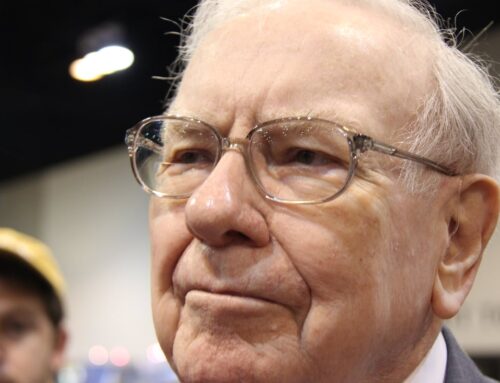Mark Zuckerberg Says Social Media Is Over
April 24, 2025
What, exactly, does a social network do? Is it a website that connects people with one another online, a digital gathering place where we can consume content posted by our friends? That’s certainly what it was in its heyday, in the two-thousands. Facebook was where you might find out that your friend was dating someone new, or that someone had thrown a party without inviting you. In the course of the past decade, though, social media has come to resemble something more like regular media. It’s where we find promotional videos created by celebrities, pundits shouting responses to the news, aggregated clips from pop culture, a rising tide of A.I.-generated slop, and other content designed to be broadcast to the largest number of viewers possible. The people we follow and the messages they post increasingly feel like needles in a digital haystack. Social media has become less social.
Facebook’s founder, Mark Zuckerberg, admitted as much during more than ten hours of testimony, over three days last week, in the opening phase of the Federal Trade Commission’s antitrust trial against Facebook’s parent company, Meta. The company, Zuckerberg said, has lately been involved in “the general idea of entertainment and learning about the world and discovering what’s going on.” This under-recognized shift away from interpersonal communication has been measured by the company itself. During the defense’s opening statement, Meta displayed a chart showing that the “percent of time spent viewing content posted by ‘friends’ ” has declined in the past two years, from twenty-two per cent to seventeen per cent on Facebook, and from eleven per cent to seven per cent on Instagram.
The F.T.C. is arguing that Meta maintained an illegal monopoly in the “personal social networking services” industry, in part by buying up Facebook’s competitors, such as Instagram, which the company acquired in 2012, and the messaging platform WhatsApp, which it acquired in 2014. But the F.T.C.’s definition of the social-media industry is hazy, and the antitrust case was already dismissed once, in 2021, partly because the “personal social networking services” market was too loosely defined. Meta’s counter-argument is, in a sense, that social media per se doesn’t exist now in the way that it did in the twenty-tens, and that what the company’s platforms are now known for—the digital consumption of all kinds of content—has become so widespread that no single company or platform can be said to monopolize it. In one of its slides at trial, Meta exhibited a graphic of a boxing ring showing the logos of Instagram, Facebook, and the various companies that Meta argues are competitors, including TikTok, YouTube, and Apple’s iMessage, though the F.T.C. doesn’t define any of those three as such. The company also used smartphone screenshots from the various apps to demonstrate how they’ve gravitated toward common formats: short video clips look similar on both Instagram and TikTok; messages look essentially the same in Instagram DMs as on Apple’s iMessage. Even as such similarities serve as helpful evidence for Meta’s defense, they also demonstrate how stultifying the entire online ecosystem has become. While in 2012 Facebook may have seemed singular and inescapable, now it looks like part of a crowded marketplace of apps competing to serve the same purpose.
The F.T.C.’s case, which originated during Donald Trump’s first term, entails reëvaluating business deals that it approved more than a decade ago, when the industry looked dramatically different. This makes the commission’s case less than airtight. Benedict Evans, an influential technology analyst, called the F.T.C.’s market definition of social networks “gerrymandering.” He told me, “By the F.T.C.’s definition, TikTok doesn’t compete with Facebook at all. Does that mean it would be O.K. for Facebook to buy TikTok?” Antitrust lawyers must prove that allegedly monopolistic practices cause consumer harm. In another antitrust case currently unfolding against Google, a court found that the company maintained a monopoly over parts of the online-advertising market by integrating its various automated advertising technologies, illegally privileging itself and harming its publishing customers by “reducing their revenue.” In the case of Meta, though, there is no price differential to point to—Meta’s platforms all allow users to access them for free—so the question of harm is less clear-cut.
The F.T.C. is arguing, instead, that Meta’s purported monopoly has led to a lack of innovation and to reduced consumer choice. But that, too, is difficult to prove in the case of Meta’s WhatsApp and Instagram acquisitions, because both sales occurred early in those companies’ life spans. In 2014, when WhatsApp was acquired, it had around half a billion users; now it has more than two billion. As Evans put it, the F.T.C. is arguing that “if Meta hadn’t bought WhatsApp, it would have become this voracious competitor.” He continued, “What we all actually know from following the history is that the founders of WhatsApp didn’t want to do any of the things that Meta did to fuel its runaway expansion. One of WhatsApp’s founders once compared the service’s goals to those of Craigslist, Zuckerberg recalled during his testimony. Meta, by contrast, aggressively pursued growth, loading WhatsApp with features such as social groups and video calls. The F.T.C. notes that market competition can result in “improved features, functionalities, integrity measures, and user experiences”; it’s hard to mount a persuasive argument that an independent WhatsApp would necessarily have provided more of those things than a Zuckerberg-owned one. (Many social networks fail; Path and Google+ were two other threats that Zuckerberg perceived, but neither grew into a viable competitor. He did at one point attempt to buy Snapchat, and though that company survived, it failed to become a major rival.)
One of the most surprising moments in Zuckerberg’s testimony came when the F.T.C. presented him with a memo that he sent to company executives, in 2018, suggesting that it might be better to spin Instagram into its own entity by choice. Zuckerberg wrote that Instagram was potentially undermining Facebook’s success, and that businesses that are independent often perform better than they would within a parent conglomerate. “Over time we may face antitrust regulation requiring us to spin off our other apps anyway,” he noted, with some prescience. Seven years ago, before the advent of TikTok and the diversification of content across digital platforms, that kind of split might have resulted in more varied products for users, more quickly—or it might not have. Either way, the social-media landscape today is arguably in the midst of a dramatic overhaul. TikTok may ultimately be banned; generative A.I. may supplant the existing model of an open, user-generated internet. On April 15th, the Verge broke the news that OpenAI is developing a social network of its own, to compete with the likes of Instagram and X. The F.T.C. may be chasing an old problem just as newer, bigger ones appear on the horizon.
This week, the European Union fined Apple and Meta for anticompetitive practices, but the penalties—five hundred million euros and two hundred million euros, respectively—are relatively modest. If the U.S. case prevails, the F.T.C. will have to decide whether to force a wholesale breakup of Meta or seek less dramatic “remedies.” One factor in this calculus might be the wishes of President Trump. In recent months, Zuckerberg has visited the White House repeatedly, and he’s ingratiated himself to the Administration with moves, at Meta, against D.E.I. and fact-checking. So far, despite a growing closeness with Silicon Valley, Trump has nevertheless continued to back the suit against Meta. As in the Administration’s ongoing trade war, Trump appreciates a pronounced threat as a tool to force a deal. Bytedance, the owner of TikTok, has all but capitulated to a mandated sale of a majority of the company. With regard to Trump, at least, Zuckerberg might be expected to capitulate one way or another. ♦
Search
RECENT PRESS RELEASES
Related Post


